-
 Sarah
Hi there! Welcome to my shop. Let me know if you have any questions.
Sarah
Hi there! Welcome to my shop. Let me know if you have any questions.
Your message has exceeded the limit.

Complete Guide to Heavy Workbenches for Serious DIY Projects
2025-11-03 13:45:18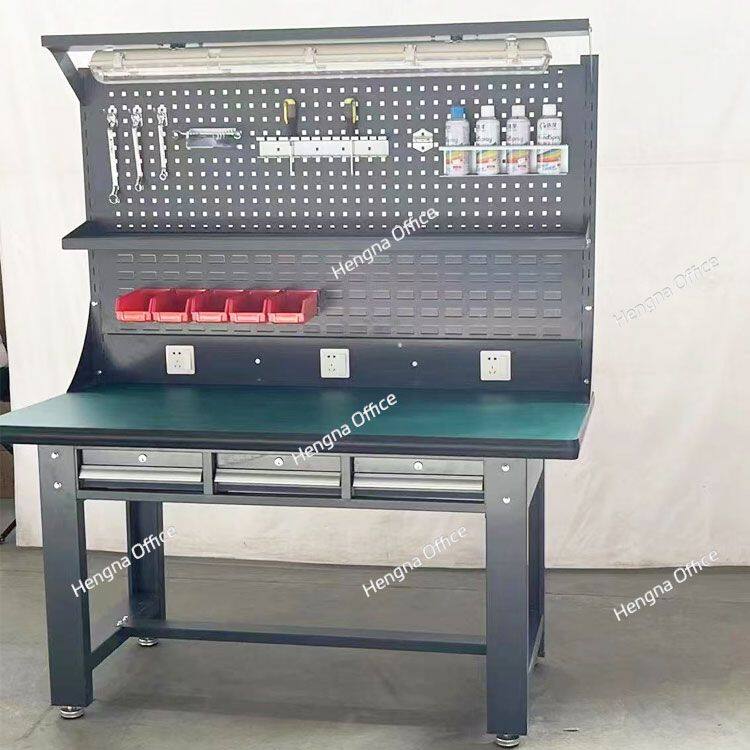
DIY enthusiasts and serious home hobbyists require workbenches that combine professional-grade features with home workshop practicality. Heavy workbenches for DIY projects must support various hobbies and projects while fitting within residential space constraints and budget considerations. This comprehensive guide explores how specialized workbenches enhance DIY projects and the essential features to consider when selecting workbenches for home workshop applications. Understanding DIY Workshop Requirements Home DIY workshops present unique challenges that demand specialized workbench solutions. The need to support various projects ranging from woodworking to electronics repair, within limited space and budget constraints, requires workbenches designed specifically for home use. DIY enthusiasts often work alone, requiring workbenches that facilitate single-operator efficiency while maintaining versatility for different project types.
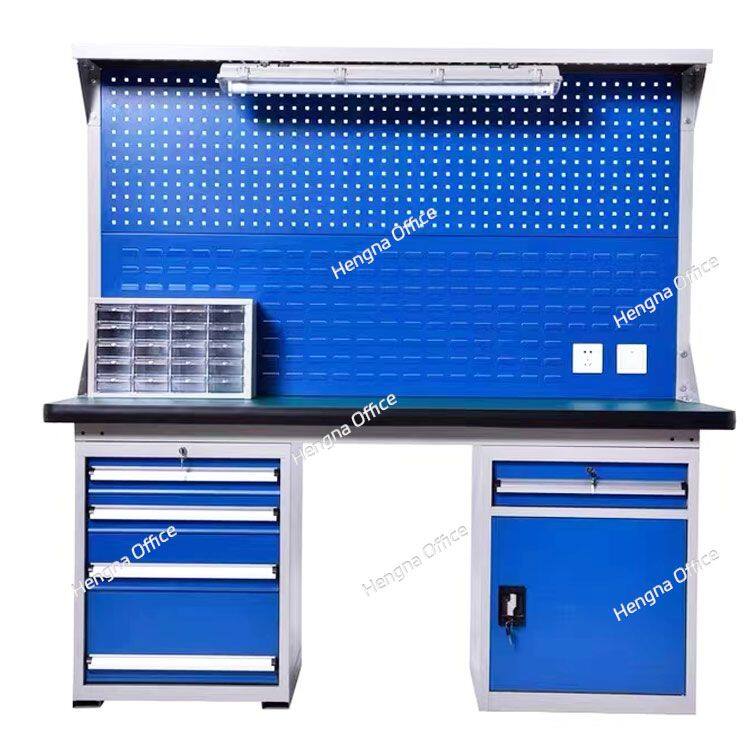 Home workshop workbenches must balance professional features with residential practicality. The ability to accommodate different hobbies, store tools efficiently, and maintain organization within limited space directly impacts project success and enjoyment. These specialized requirements distinguish DIY workbenches from commercial or industrial alternatives while maintaining professional-grade performance. Weight Capacity and Project Versatility DIY projects encompass various weights and sizes, from small electronics repairs to furniture construction and automotive work. Home workbenches should support 500-1500 pounds distributed across the surface, providing versatility for different project types. This capacity must be maintained while maintaining reasonable size for residential workshop spaces. Project versatility considerations influence workbench design and feature selection. Adjustable height features accommodate different projects and working positions. Modular designs allow for reconfiguration as project needs change or new hobbies are adopted. Some DIY workbenches feature interchangeable components that support various activities within the same framework. Space Optimization and Home Integration Residential workshops often face space constraints that require efficient workbench design. Compact designs maximize workspace while minimizing floor space usage. Fold-down or wall-mounted options provide temporary work surfaces that can be stored when not in use. Multi-level designs utilize vertical space while maintaining accessibility. Home integration considerations include aesthetic compatibility with residential spaces and noise reduction during operation. Some DIY workbenches feature finished appearances that complement home décor while maintaining workshop functionality. Built-in dust collection or noise-dampening features enhance home workshop livability and maintain good relationships with neighbors or family members. Storage and Organization Solutions DIY enthusiasts accumulate various tools, materials, and supplies that require organized storage solutions. Home workbenches incorporate various storage options including drawers, cabinets, and shelving systems designed specifically for residential use. Storage capacity must balance tool organization with space constraints and accessibility requirements.
Home workshop workbenches must balance professional features with residential practicality. The ability to accommodate different hobbies, store tools efficiently, and maintain organization within limited space directly impacts project success and enjoyment. These specialized requirements distinguish DIY workbenches from commercial or industrial alternatives while maintaining professional-grade performance. Weight Capacity and Project Versatility DIY projects encompass various weights and sizes, from small electronics repairs to furniture construction and automotive work. Home workbenches should support 500-1500 pounds distributed across the surface, providing versatility for different project types. This capacity must be maintained while maintaining reasonable size for residential workshop spaces. Project versatility considerations influence workbench design and feature selection. Adjustable height features accommodate different projects and working positions. Modular designs allow for reconfiguration as project needs change or new hobbies are adopted. Some DIY workbenches feature interchangeable components that support various activities within the same framework. Space Optimization and Home Integration Residential workshops often face space constraints that require efficient workbench design. Compact designs maximize workspace while minimizing floor space usage. Fold-down or wall-mounted options provide temporary work surfaces that can be stored when not in use. Multi-level designs utilize vertical space while maintaining accessibility. Home integration considerations include aesthetic compatibility with residential spaces and noise reduction during operation. Some DIY workbenches feature finished appearances that complement home décor while maintaining workshop functionality. Built-in dust collection or noise-dampening features enhance home workshop livability and maintain good relationships with neighbors or family members. Storage and Organization Solutions DIY enthusiasts accumulate various tools, materials, and supplies that require organized storage solutions. Home workbenches incorporate various storage options including drawers, cabinets, and shelving systems designed specifically for residential use. Storage capacity must balance tool organization with space constraints and accessibility requirements.
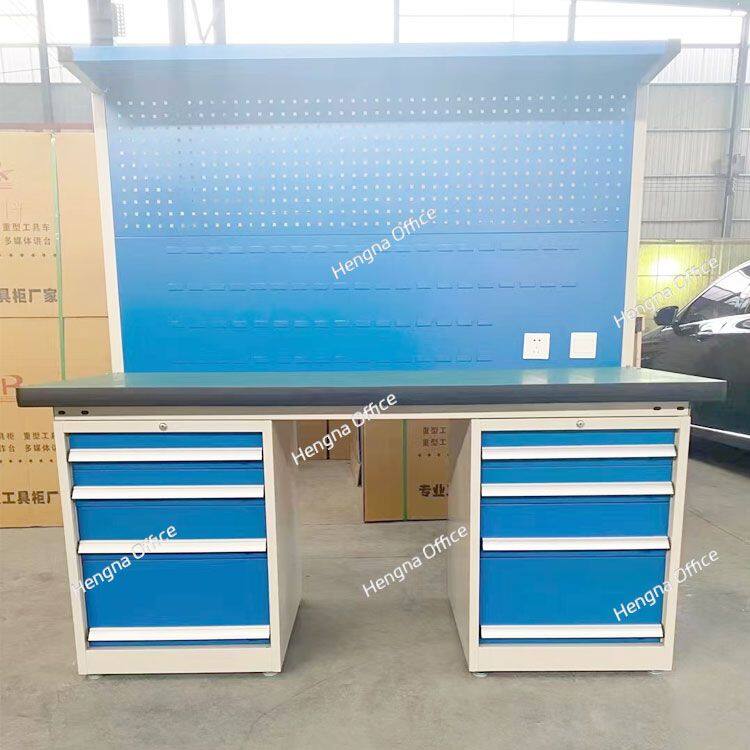 Specialized storage features include pegboard backing for customizable tool organization, built-in charging stations for power tools, and material storage for commonly used supplies. Some DIY workbenches feature lockable storage that provides security for valuable tools and equipment. These organization systems enhance efficiency and reduce time spent searching for tools and materials. Power Integration and Electrical Safety DIY projects often require various power tools and equipment that need safe electrical access. Home workbenches may feature built-in power strips with GFCI protection for tool operation. Integrated cable management systems keep electrical cords organized and prevent trip hazards in busy workshop spaces. Some DIY workbenches feature specialized power systems including USB charging ports for devices, built-in lighting systems, or connections for specialized equipment. Electrical safety considerations include proper grounding, circuit protection, and weather-resistant components for garage or outdoor workshop applications. These power integration features enhance convenience while maintaining safety standards. Budget Considerations and Value DIY enthusiasts typically operate within budget constraints that require careful consideration of workbench investments. Home workbench selection must balance features, quality, and cost while providing long-term value. Some DIYers opt for modular designs that allow for gradual expansion as budgets allow or project needs evolve. Value considerations include durability, versatility, and potential for customization. Some home workbenches feature upgradeable components that can be added over time. DIY-friendly designs may allow for personalization or modification to suit specific project requirements. These budget-conscious features ensure that workbench investments provide maximum value for home workshop applications. Multi-Hobby Versatility Many DIY enthusiasts pursue various hobbies that require different workbench features and configurations. Multi-purpose designs support woodworking, electronics, automotive work, and other activities within the same workspace. Adjustable features and modular components allow workbench adaptation to different hobby requirements. Some home workbenches feature interchangeable surface plates that
Specialized storage features include pegboard backing for customizable tool organization, built-in charging stations for power tools, and material storage for commonly used supplies. Some DIY workbenches feature lockable storage that provides security for valuable tools and equipment. These organization systems enhance efficiency and reduce time spent searching for tools and materials. Power Integration and Electrical Safety DIY projects often require various power tools and equipment that need safe electrical access. Home workbenches may feature built-in power strips with GFCI protection for tool operation. Integrated cable management systems keep electrical cords organized and prevent trip hazards in busy workshop spaces. Some DIY workbenches feature specialized power systems including USB charging ports for devices, built-in lighting systems, or connections for specialized equipment. Electrical safety considerations include proper grounding, circuit protection, and weather-resistant components for garage or outdoor workshop applications. These power integration features enhance convenience while maintaining safety standards. Budget Considerations and Value DIY enthusiasts typically operate within budget constraints that require careful consideration of workbench investments. Home workbench selection must balance features, quality, and cost while providing long-term value. Some DIYers opt for modular designs that allow for gradual expansion as budgets allow or project needs evolve. Value considerations include durability, versatility, and potential for customization. Some home workbenches feature upgradeable components that can be added over time. DIY-friendly designs may allow for personalization or modification to suit specific project requirements. These budget-conscious features ensure that workbench investments provide maximum value for home workshop applications. Multi-Hobby Versatility Many DIY enthusiasts pursue various hobbies that require different workbench features and configurations. Multi-purpose designs support woodworking, electronics, automotive work, and other activities within the same workspace. Adjustable features and modular components allow workbench adaptation to different hobby requirements. Some home workbenches feature interchangeable surface plates that
accommodate different hobby requirements. Some home workbenches feature interchangeable surface plates that can be swapped based on specific activities - smooth surfaces for electronics, rugged surfaces for woodworking, or chemical-resistant surfaces for automotive work. This versatility allows DIY enthusiasts to pursue multiple interests without requiring separate workstations for each hobby.
Hobby-specific accessories enhance functionality for different activities. Woodworking accessories might include integrated vise systems or dust collection ports. Electronics work could feature ESD protection and integrated soldering stations. Automotive accessories might include fluid drainage systems or heavy-duty vise mounting. These specialized features enable serious DIYers to maintain professional-quality work within home workshop constraints.
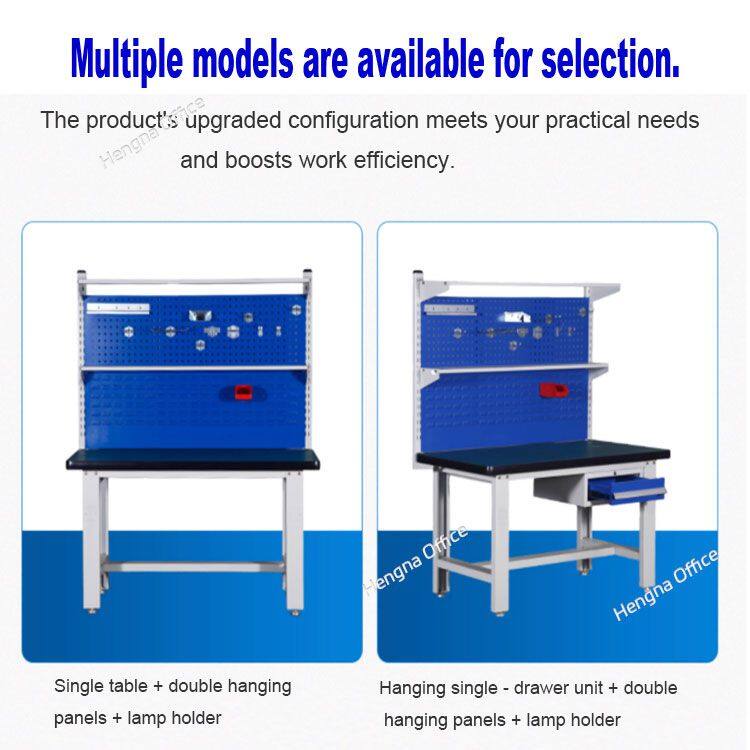
Assembly and Installation Considerations
DIY workbench assembly often falls to the homeowner, requiring clear instructions and manageable component weights. Home workbenches should feature modular designs that can be assembled with basic tools and limited assistance. Some manufacturers offer assembly services or provide video tutorials that simplify the setup process.
Installation considerations include floor protection, leveling, and anchoring for safety. Home workbenches may need to accommodate uneven garage floors or basement surfaces. Adjustable feet with levelers ensure stability regardless of placement. Some models incorporate non-marring floor protectors that prevent damage to residential flooring surfaces.
Lighting and Visibility Enhancement
Proper lighting significantly impacts DIY project quality and eye strain during detailed work. Home workbenches may feature integrated lighting systems with adjustable brightness and positioning. Task lighting focused on specific work areas enhances visibility for precision operations. Some models include magnifying lights or color-adjustable lighting that supports different project types.
Natural lighting integration maximizes available daylight in basement or garage workshop spaces. Some DIY workbenches feature reflective surfaces or light-diffusing designs that enhance visibility without creating glare. These lighting considerations reduce eye strain during extended work sessions and improve project quality.
Ventilation and Air Quality Management
Many DIY projects generate dust, fumes, or airborne particles that require proper ventilation management. Home workbenches may incorporate built-in dust collection ports that connect to shop vacuums or dust collection systems. Some models feature backdraft ventilation or integrated air filtration systems that maintain air quality in enclosed workshop spaces.
Ventilation considerations become particularly important for woodworking, painting, or chemical-intensive projects. Some DIY workbenches feature fold-down backsplashes or integrated spray booths that contain overspray and fumes. These air quality management features protect both project quality and DIYer health in residential workshop environments.
Community and Learning Integration
Serious DIY enthusiasts often benefit from community connections and learning opportunities. Some home workbenches feature designs that support video recording for tutorial creation or online sharing. Built-in device mounting or camera integration enables DIYers to document their projects and share knowledge with broader communities.
Learning integration features might include built-in reference material storage, measurement marking systems, or integrated teaching aids. Some workbenches feature designs that accommodate collaborative projects or demonstrations for workshops and classes. These community-oriented features enhance the DIY experience and support skill development.
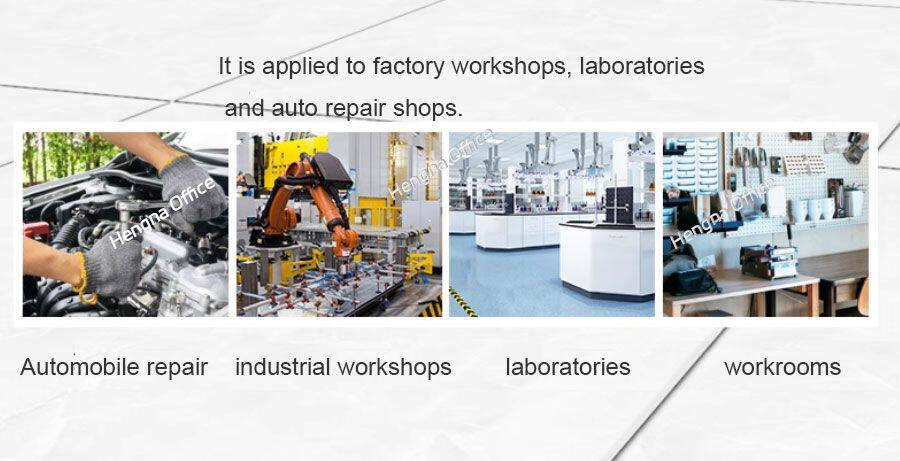
Future-Proofing and Upgradeability
DIY interests and skills evolve over time, requiring workbenches that can adapt and grow with the enthusiast. Future-proofing considerations include modular designs that allow for component upgrades, expansion capabilities for additional accessories, and standardized mounting systems that accommodate new tools and technologies.
Some home workbenches feature smart technology integration that supports future advancements in DIY tools and equipment. Built-in sensor systems, digital measurement integration, or connectivity for smart home workshop management provide pathways for technological enhancement. These future-proofing features ensure that workbench investments remain valuable as DIY skills and interests develop.
Heavy workbenches for serious DIY projects represent essential investments that bridge professional-grade performance with residential practicality. By understanding versatility requirements, space optimization needs, storage solutions, and hobby-specific features, DIY enthusiasts can select workbenches that enhance project quality and enjoyment. The right DIY workbench becomes a central hub for creativity, learning, and accomplishment in home workshop environments.
Tags: Heavy Workbenches, DIY Projects, Complete Guide for Serious DIY Projects

